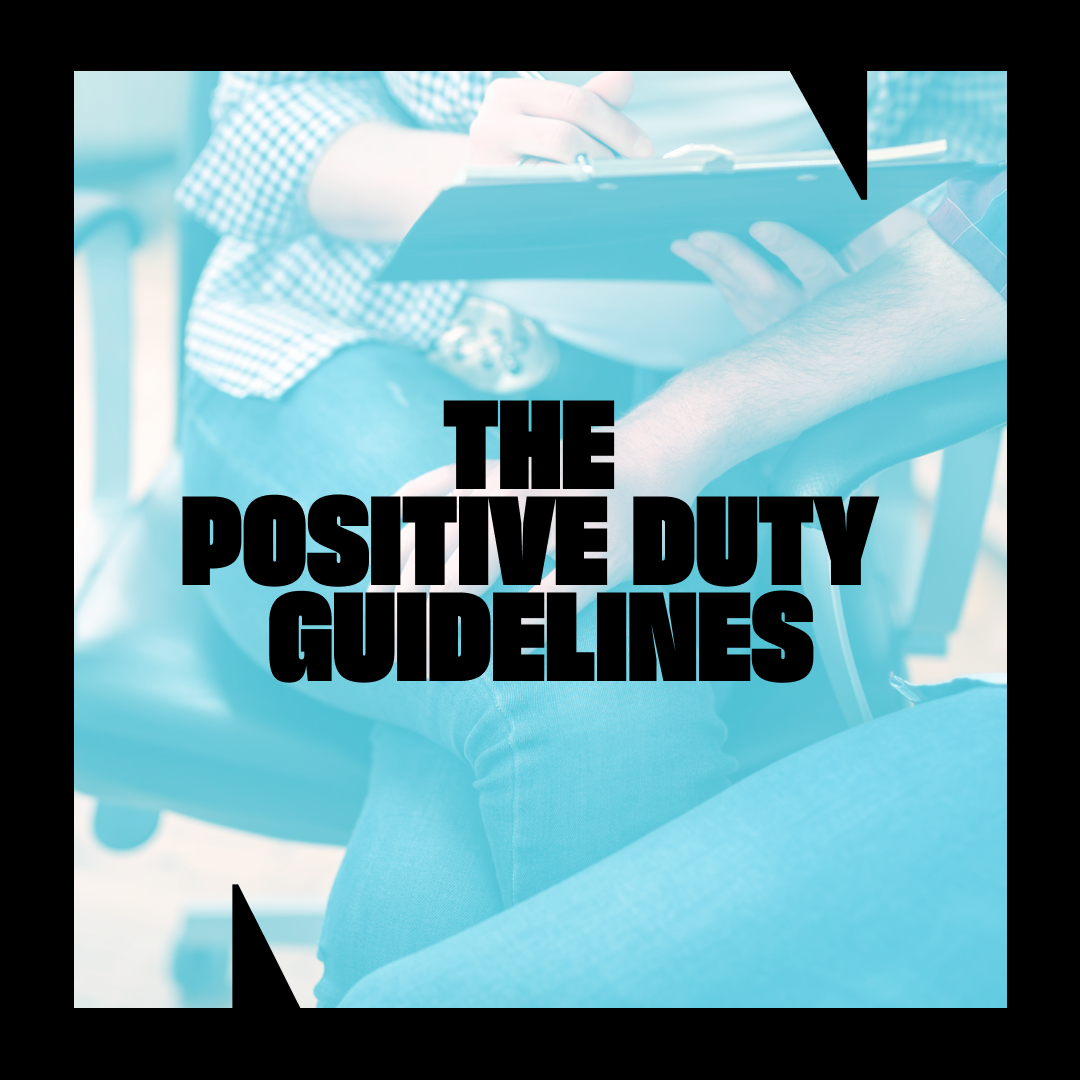Navigating new sexual harassment workplace laws

Introduction
In Australian workplaces, sexual harassment remains an unacceptably common feature. Over the past five years, one in three people surveyed experienced sexual harassment in the workplace.
Groups most vulnerable include those who:
- are aged 15-29,
- identified as LGBITQ+,
- are Aboriginal & Torres Strait Islander and
- have a disability.
Common forms of sexual harassment in the workplace include offensive, sexually suggestive jokes or comments, followed by intrusive questioning - types of comments that often provide a gateway for more serious forms of sexual misconduct.
Sexual Harassment in the workplace
Sexual harassment in the workplace can have a profoundly negative impact on employee’s wellbeing. These effects can be emotional, psychological and physical, and may vary in intensity depending on the nature and duration of the harassment.
Some ways in which sexual harassment can affect an employee include:
- Emotional distress: Sexual harassment often leads to emotional distress. Victims may experience a range of emotions, such as shame, guilt, fear, anger, anxiety, as they grapple with the impact of the harassment.
- Decreased mental wellbeing: Long-term exposure to sexual harassment can lead to increased levels of anxiety and depression. This can cause a decrease in the quality of sleep, mood swings, and a general decline in mental wellbeing.
- Isolation and withdrawal: Employees who experience withdrawal may withdraw from colleagues and workplace activities to avoid the harasser. This isolation can lead to a sense of isolation and detachment from the workplace community.
- Fear of retaliation: Employees who experience harassment may fear retaliation if they report it. This fear can prevent them from seeking help or justice and perpetuate the cycle of harassment.
The Positive Duty framework
In August of 2023, the Australian Human Rights Commission released its Positive Duty guidelines to assist businesses and organisations as part of the Respect@Work legislation, which came into effect in December 2023.
The Positive Duty reform places the burden on employers to take “reasonable and proportionate” measures to eliminate - as far as possible - sex discrimination, sexual harrassment, sex-based harrassment and victimisation in the workplace.
It takes the burden away from the employee to report sexual harassment - fewer than 20% of people who have experienced workplace sexual harassment had made a complaint about it.
The aim of doing so is to create an environment that mitigates the risk of sexual harassment events occuring in the first instance. There are seven minimum standards contained within the guideline that relate to:
- leadership,
- knowledge,
- risk assessment and transparency,
- culture,
- support,
- reporting and response and
- measuring.
The minimum standards are intended to give businesses a framework to implement and manage their positive duty.
The Positive Duty framework allows businesses and organizations the opportunity to create safe, inclusive and respectful workplaces. There are profound benefits to doing so, including protecting employees wellbeing, ensuring equal opportunities, fostering a positive workplace culture and boosting productivity.
We’re now at the point where sweeping issues under the rug, or feigning ‘I didn’t know what to do’ by employers won’t be tolerated and, as always, still isn’t good enough. Last year, we launched the Support Line to help give individuals more control and power over how they’d like issues handled.
The NNC Support Line
Experiencing sexual harassment in the workplace can be a challenging and difficult experience to navigate. It doesn’t have to be something a person experiences alone.
If you or someone you know has experienced sexual harassment or any other form of wrong-doing (bullying, discrimination, underpayment) in the workplace, we are here to help.
Our partnership with Media Arts Lawyers gives you access to a free call and legal advice with a specialist lawyer to understand where you stand. Get in touch with us to find out more.
This post was written by NNC Community Manager, Surej Sidhu.



